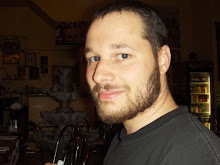Some Considerations and Questions Arising from the ALIM Program
As Muslims and as human beings we must oppose the hegemonic discourse of science. By hegemonic discourse, I mean a way of thinking, of proceeding in an inquiry, and of framing a debate that uncritically assumes the dominance and universal applicability of the tools, concepts, and methodologies of one field of study over all other fields. In the case of science, the tacit assumption is that scientific truth trumps all other conceptions of truth, scientific truth claims have precedence over non-scientific ones, and the methodology of science is a paradigmatic example of proper inquiry which ought to be emulated. As a result, the insights and truths, not only of religion, but of Literature, History, non-reductionistic accounts of History, Cultural Studies, in short, the whole of the Humanities, are either discounted or trivialized. Philosophy, too, is marginalized except to the extent that it can be pressed into service advancing the case for eliminative materialism.
Do scientific methodologies establish the universal truth of scientific theories or do they only support the predictive validity of those theories and testify to their usefulness in organizing scientific thought at a given historical instant? Is there something beyond the capacity for accurate prediction which can establish the truth of scientific theories, or, following Von Fraasen, is predictive validity the most that can be advanced for any scientific theory. Does it make sense to say that theories give accurate predictions because they are true? Or is this mere grand standing? How do refutations of reductionism, materialism, and the correspondence theory of truth undermine the case for scientistic supremacy?
This has grave implications for Muslims; as Imam Muneer Fareed has pointed out, Muslims in the physical sciences accept that “matter can be neither created nor destroyed, despite the fact that this is complete kufr.” This statement predicates unique attributes of Allah (SWT) of created beings. This is clearly unacceptable from an Islamic point of view. Can it be properly qualified so that we can still derive the benefit in terms of accurate prediction but avoid the theological difficulties?


0 Comments:
Post a Comment
<< Home